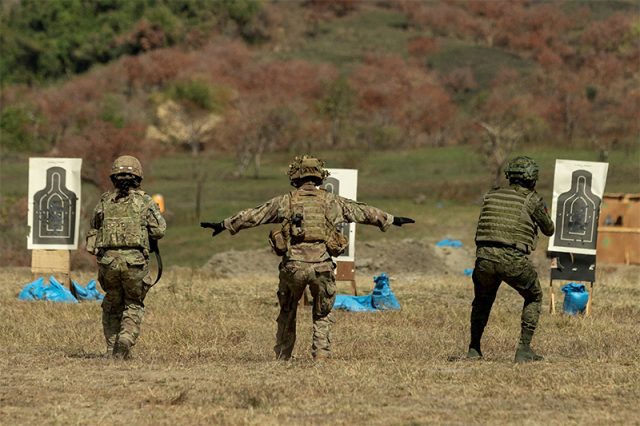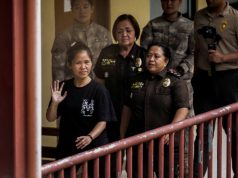
FORT MAGSAYSAY, Philippines— Philippine troops staged live-fire exercises with their U.S. counterparts in the Southeast Asian country’s largest military camp as part of army-to-army drills aimed at enhancing Manila’s defense capabilities against external threats.
The drills come after President Ferdinand Marcos Jr’s decision in February to expand the United States’ access to his country’s military bases – a move that has infuriated China, which accuses Washington of stoking tensions in the region.
More than 3,000 Filipino and U.S. soldiers participated in the three-week long annual exercises called Salaknib, which on Friday featured anti-tank and small-arms live-fire exercises, and the firing of High Mobility Artillery Rocket System (Himars).
“We are now transitioning from internal security operations to territorial defense operations,” Philippine army training officer Lt. Col. Tara Cayton, said in a news conference.
The live-fire drills took place at Fort Magsaysay in Luzon, the country’s largest island, and one of the five existing sites the United States has access to under its Enhanced Defense Cooperation Agreement (EDCA) with Manila.
Under that agreement, the United States can use the bases for joint training, pre-positioning of equipment and building of facilities such as runways, fuel storage and military housing, but not to maintain a permanent presence.
Fort Magsaysay will also host the biggest-ever joint military drills between the Philippines and the United States next month, which highlight improved ties with the Western power under Marcos.
READ: Philippine-US annual military drills will be biggest ever —official
The annual ‘Balikatan’ exercises, which will see 17,600 participants from both sides, including around 12,000 from the United States, come against the backdrop of what the Philippines calls “aggressive” Chinese actions in the South China Sea.
—Writing by Karen Lema; Editing by Kanupriya Kapoor









